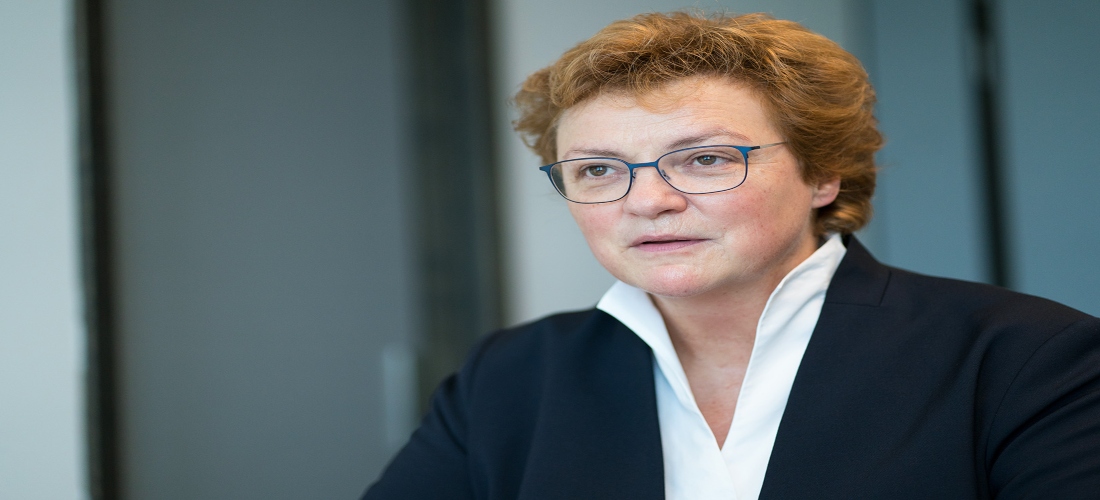Access to -AX Capital Online: ONLINE SYSTEM
NEWS

Hohlmeier says the weather will be the top priority of the EU budget priority
The general priority for Parliament is that we want to address the issue of climate change and, in parallel, combine it with the possibilities of creating new jobs and strengthening the competitiveness of our economy.
At the moment, we are not reaching the goal of 20% climate-related EU spending for 2014-2020, as the EU wanted. This is due to the relatively low climate-related expenditure in 2014, which we cannot compensate; but we wanted to make a clear statement that Parliament wants to contribute significantly to innovation, research and new green technologies with next year's budget.
We also want to support digitalization because for climate research, we need good digital tools. Digitalization not only helps with the EU's climate objectives, but also allows us, for example, to improve research on serious diseases or more efficient agricultural methods. We want to financially support universities and research institutions that carry out this type of research and collaborate successfully with the industry.
The priority of climate and environmental protection continues in the area of common agricultural policy and rural development with the successful LIFE + program. The third pillar is development policy, where we want to continue reducing poverty, but also address issues such as plastic-free oceans and waste disposal. With our budgetary instruments, we can help address climate-related problems, for example, by supporting the use of renewable energy in countries where they could help solve the problem of access to sustainable energy and address the problem of energy.
It has added € 2 billion to the Commission proposal on climate spending by 2020. Will this be enough to achieve the EU-related climate spending target of 20% for 2014-2020?
No, we will not reach the goal because in 2014 we had a contribution of less than 14% of climate-related spending, which we could not compensate in the next six years of the current long-term budget of the current EU. However, by 2020, my proposal is very clearly above the 20% target. We believe that the young generation really has the right to tell us when it comes to the weather "Please do something, do it quickly and don't just discuss the issue of what we could do."
We would also like to increase financial support for the successful Youth Employment Initiative. The youth unemployment rate is decreasing and this program is helping to help them find work. We would also like to increase funding for Erasmus + to give more young people the opportunity to study abroad.
Can you get the Council to join the priorities related to climate, youth and the future?
I think that the Council can definitely join. We have a special challenge because this is the last year of the current budget framework. Some countries that are net contributors want to cut the budget, while other Member States want to allocate more funds to the area of cohesion or agriculture. At the same time, the "brexit" is happening and we don't know what will happen after October 31. I still hope we have a soft “brexit”. The cost of a hard “brexit” for the EU would be 11,000 million euros until the end of the current budgetary framework, something we should all avoid at all costs.
Could you explain what would happen to the EU budget in the case of a “brexit” without agreement?
We are prepared. The United Kingdom cannot pressure us. If there is a hard brexit, we would have to change the budget. But we already know that the research teams in the United Kingdom are struggling to continue with their projects and their cooperation with the EU. I believe that the United Kingdom will end up contributing to many programs, for example in the area of security and agriculture. There are many areas where they want to be part of the EU, so the money will return to the EU budget in the same way it does with Norway, Switzerland, Liechtenstein and other third countries. Parliament wants to be very honest about the fact that there is no membership in the letter for the United Kingdom because you can never accept that a country leaves the EU and then gets a better deal.
Parliament will vote on its position for the budget for next year at the plenary session in Strasbourg on October 23.
At the moment, we are not reaching the goal of 20% climate-related EU spending for 2014-2020, as the EU wanted. This is due to the relatively low climate-related expenditure in 2014, which we cannot compensate; but we wanted to make a clear statement that Parliament wants to contribute significantly to innovation, research and new green technologies with next year's budget.
We also want to support digitalization because for climate research, we need good digital tools. Digitalization not only helps with the EU's climate objectives, but also allows us, for example, to improve research on serious diseases or more efficient agricultural methods. We want to financially support universities and research institutions that carry out this type of research and collaborate successfully with the industry.
The priority of climate and environmental protection continues in the area of common agricultural policy and rural development with the successful LIFE + program. The third pillar is development policy, where we want to continue reducing poverty, but also address issues such as plastic-free oceans and waste disposal. With our budgetary instruments, we can help address climate-related problems, for example, by supporting the use of renewable energy in countries where they could help solve the problem of access to sustainable energy and address the problem of energy.
It has added € 2 billion to the Commission proposal on climate spending by 2020. Will this be enough to achieve the EU-related climate spending target of 20% for 2014-2020?
No, we will not reach the goal because in 2014 we had a contribution of less than 14% of climate-related spending, which we could not compensate in the next six years of the current long-term budget of the current EU. However, by 2020, my proposal is very clearly above the 20% target. We believe that the young generation really has the right to tell us when it comes to the weather "Please do something, do it quickly and don't just discuss the issue of what we could do."
We would also like to increase financial support for the successful Youth Employment Initiative. The youth unemployment rate is decreasing and this program is helping to help them find work. We would also like to increase funding for Erasmus + to give more young people the opportunity to study abroad.
Can you get the Council to join the priorities related to climate, youth and the future?
I think that the Council can definitely join. We have a special challenge because this is the last year of the current budget framework. Some countries that are net contributors want to cut the budget, while other Member States want to allocate more funds to the area of cohesion or agriculture. At the same time, the "brexit" is happening and we don't know what will happen after October 31. I still hope we have a soft “brexit”. The cost of a hard “brexit” for the EU would be 11,000 million euros until the end of the current budgetary framework, something we should all avoid at all costs.
Could you explain what would happen to the EU budget in the case of a “brexit” without agreement?
We are prepared. The United Kingdom cannot pressure us. If there is a hard brexit, we would have to change the budget. But we already know that the research teams in the United Kingdom are struggling to continue with their projects and their cooperation with the EU. I believe that the United Kingdom will end up contributing to many programs, for example in the area of security and agriculture. There are many areas where they want to be part of the EU, so the money will return to the EU budget in the same way it does with Norway, Switzerland, Liechtenstein and other third countries. Parliament wants to be very honest about the fact that there is no membership in the letter for the United Kingdom because you can never accept that a country leaves the EU and then gets a better deal.
Parliament will vote on its position for the budget for next year at the plenary session in Strasbourg on October 23.



